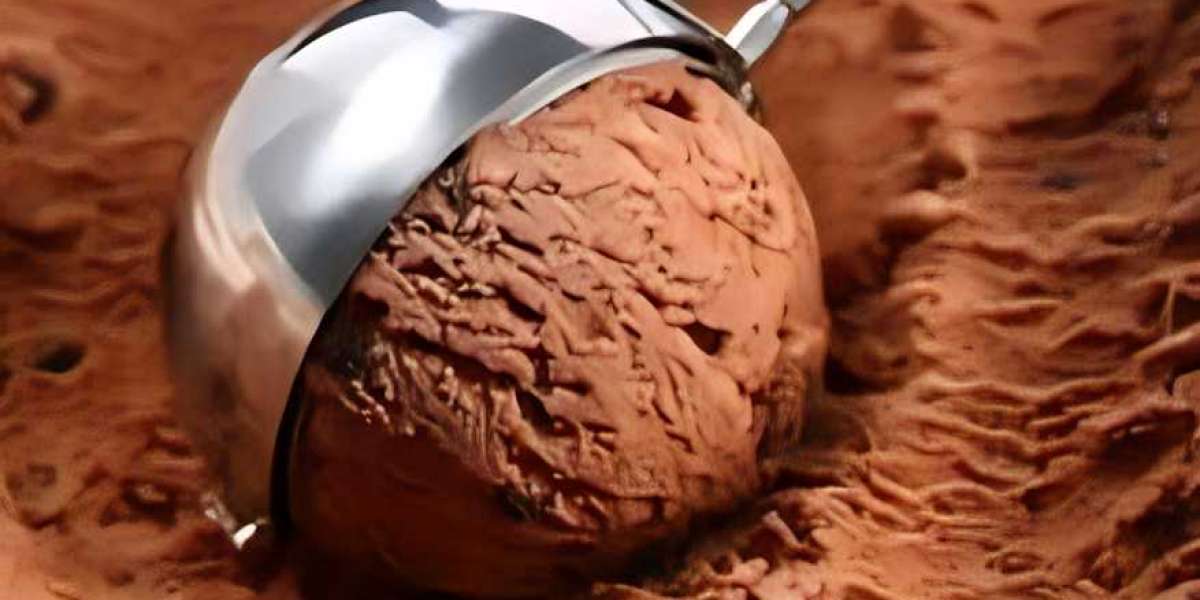When the craving for something cold, creamy, and sweet strikes, ice cream is the go-to treat for many. But as delightful as it tastes, you may find yourself wondering: is ice cream easy to digest? Some people enjoy it with no issues, while others experience bloating, stomach discomfort, or even digestive upset. So, what makes ice cream difficult—or easy—to digest, and who should be cautious when indulging in it?
Let’s dive deep into the science behind ice cream digestion, the ingredients involved, how your body handles it, and ways to make it easier on your stomach.
What Happens When You Eat Ice Cream?
Digesting ice cream is a complex process. From the moment it hits your mouth, the breakdown of sugar, fat, and dairy begins. However, because ice cream is rich in fat and sugar—and typically made with dairy—it takes longer to digest than other lighter, simpler foods.
Fat slows gastric emptying, which means it keeps your stomach full for longer. While this might be helpful for satiety, it can cause discomfort for people with sensitive digestive systems. Additionally, the dairy content (mainly lactose) poses a challenge for many.
The Role of Lactose in Ice Cream
One of the most common reasons people find ice cream hard to digest is lactose, the natural sugar found in milk. Ice cream is typically made with cream and milk, making it a high-lactose food.
Many people, especially adults, are lactose intolerant to some degree. This means their bodies produce little or no lactase, the enzyme required to digest lactose properly. When lactose is not broken down in the small intestine, it travels to the colon, where gut bacteria ferment it, producing gas, bloating, cramping, and diarrhea.
So, if you often experience stomach issues after enjoying ice cream, lactose intolerance may be to blame.
Fat and Sugar Content: A Double Digestive Challenge
Besides lactose, the fat and sugar in ice cream can also slow digestion. Here’s how:
Fat: High-fat foods like ice cream take longer to digest. The body must release more bile and enzymes to break it down. This process puts extra strain on your digestive system.
Sugar: The high sugar content in ice cream can lead to a spike in blood sugar levels. For some people, especially those with insulin resistance, this can lead to rapid crashes, fatigue, or digestive upset.
Moreover, the combination of sugar and fat can lead to delayed gastric emptying—meaning the ice cream sits in your stomach longer, potentially causing bloating or discomfort.
Is Ice Cream Easy to Digest for Everyone?
For some individuals, especially those with robust digestion and no lactose sensitivity, ice cream may not cause any issues. But for others—particularly people with:
Lactose intolerance
IBS (Irritable Bowel Syndrome)
Sensitive stomachs
Sluggish digestion
Food intolerances
—ice cream can be problematic.
Even small servings may trigger symptoms ranging from mild gas to severe bloating, cramps, and diarrhea.
Temperature and Digestion
One often overlooked factor in digestibility is the cold temperature of ice cream. Cold foods and drinks can cause temporary blood vessel constriction in the digestive tract, slowing down enzyme activity and digestion. Eating ice cream too quickly or in large amounts can intensify this effect, making it feel "heavy" in the stomach.
Does Ice Cream Provide Any Digestive Benefits?
Surprisingly, not all ice cream is created equal. Some varieties include live probiotic cultures (like yogurt-based ice creams or kefir ice cream). These beneficial bacteria can help with digestion by improving gut flora balance.
However, most commercial ice creams are pasteurized and lack live cultures. Plus, the high sugar content in these products may actually harm your gut microbiome if consumed excessively.
The FODMAP Factor
People following a low-FODMAP diet, particularly those with IBS, may find ice cream difficult to tolerate. Lactose is a high-FODMAP sugar, and traditional dairy-based ice creams are naturally high in it. This makes ice cream a red-flag item during the elimination phase of the diet.
If you're sensitive to FODMAPs, always look for lactose-free or dairy-free options.
Who Should Be Cautious with Ice Cream?
Here’s a quick list of people who might find ice cream difficult to digest:
| Condition | Why Ice Cream May Be a Problem |
|---|---|
| Lactose Intolerance | Contains milk sugar that can’t be broken down |
| IBS | Dairy, fat, and sugar may trigger flare-ups |
| Acid Reflux | High-fat content can worsen symptoms |
| Gallbladder Issues | Fat requires more bile, stressing the gallbladder |
| Diabetes | High sugar can spike blood glucose |
| Post-Surgery Recovery | Slow-digesting and may disrupt healing diets |
Is Ice Cream Easy to Digest in Small Quantities?
Yes, for some people. If you don’t have significant food sensitivities or digestive issues, a small portion of ice cream (e.g., half a cup) may not cause noticeable symptoms. Smaller servings are easier on the stomach and reduce the fat and lactose load your system has to process at one time.
Eating slowly, avoiding gulping air, and choosing plain flavors without mix-ins can also help.
Best Times to Eat Ice Cream for Digestion
If you do want to enjoy ice cream with minimal discomfort, consider these tips on when to eat it:
After a meal: Your digestive system is already activated and can handle the added fat and sugar better.
Earlier in the day: Metabolism is higher and digestion is stronger.
In moderation: Keep servings small to reduce the digestive burden.
Tips to Make Ice Cream Easier to Digest
Choose lactose-free options – These are designed specifically for people with lactose intolerance.
Try dairy-free alternatives – Coconut, almond, oat, or soy-based ice creams are often easier to digest.
Avoid mix-ins and toppings – Candy, nuts, cookies, and syrups increase the sugar and fat load.
Go for low-fat varieties – They digest faster and cause less strain on your system.
Eat slowly – Give your body time to adjust and process.
Don’t lie down immediately – Stay upright to aid digestion.
Homemade Ice Cream: A Healthier Alternative?
Making your own ice cream gives you control over the ingredients. You can use lactose-free milk, reduce the sugar, and avoid stabilizers or emulsifiers. Here’s a simple recipe idea:
Banana Nice Cream:
2 ripe frozen bananas
A splash of lactose-free milk or almond milk
Blend until smooth
Optional: Add a touch of honey or vanilla extract.
This version is dairy-free, low in fat, and much easier to digest for most people.
Is Ice Cream Easy to Digest for Kids?
Children tend to have better lactose tolerance than adults, and many can digest dairy well. However, parents should still monitor portion sizes and look for signs of discomfort after eating ice cream. Additionally, limit added sugars, as they contribute to energy spikes and digestive upset.
Final Verdict: Is Ice Cream Easy to Digest?
To sum it up, is ice cream easy to digest? The answer depends on your body. For people without lactose intolerance, gut sensitivities, or metabolic disorders, small amounts of ice cream may digest just fine. But for many others, it poses a challenge due to its:
High fat content
Lactose (milk sugar)
Sugar load
Cold temperature
Artificial additives
Those with digestive sensitivities should consider lactose-free, dairy-free, or homemade alternatives—and always enjoy ice cream in moderation.
To learn more about how long ice cream stays in your system and the factors that affect digestion, read this detailed breakdown: Is ice cream easy to digest



